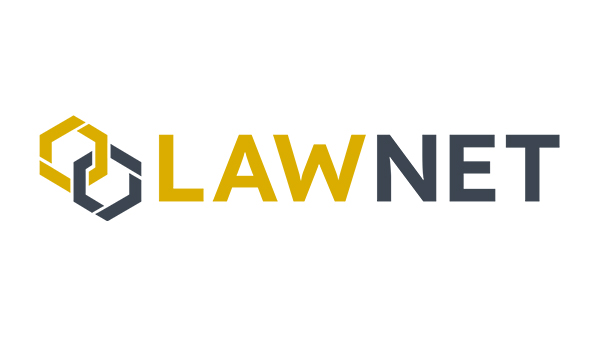How Law Firms Can Leverage Technology to Retain their Staff
A guest blog by Jennifer Budd of Consortium More than Marketing
Cultural attitudes to work have shifted dramatically over the last few years and the legal sector – where it is traditional to demand long hours without complaint – has felt the brunt of ‘the Great Resignation’. Now, more than ever it’s vital to create a workplace that not only attracts new staff but encourages your existing team to stay.
In 2021, 32% of UK workers said that they would quit their jobs if the technology they were using at work was outdated. What you ask of your staff must be matched with what you offer to enable them to fulfil that request. If your firm can’t keep up then your staff will leave, either to a competitor or from the sector entirely.
Working Efficiencies
Technology designed specifically for the legal sector now exists to simplify tasks like contract reviews. AI (Artificial Intelligence) can do a lot of work that was previously wholly manual. In the case of contract reviews, this speeds up a process by reducing the time a lawyer needs to spend reading a document, which reduces the workload for the individual and increases profitability for the firm.
The speed that these technologies grant the legal process allows for a quicker reaction time. As much as we would like it to be, major events like the Pandemic are not isolated incidents, and they will always happen. Not having to divert your staff to review old paper contracts to double-check your obligations every time they happen and instead being able to quickly search through a digitised version saves everyone’s time and the firm money.
Provided you have a proactive digital security strategy, there’s the additional benefit of having one central digital document storage. Files can be accessed quickly from anywhere they’re needed. If an employee does leave your firm, there is no longer a scramble to find and secure documents they’ve been working on, and their notes are already in the central database waiting to bring their successor up to speed.
There is no reason that routine work has to be drudgery. The right technology enables your staff to work faster and produce more consistent work which is a benefit to the firm. But it also gives your staff a little breathing room. Removing the grind gives your staff room to do more fulfilling work, which is an environment in which they will want to stay.
Enable Remote Working
When the pandemic forced companies to switch to remote working, it was the first time a lot of workers had ever considered it as a form of working, let alone experienced it. Now, more and more people are looking for remote or location-flexible jobs.
If you’re looking to retain your staff (and attract new talent) then you should seriously consider integrating some form of remote work as part of your standard offering. There are so many systems designed to bring teams together across distances and get the job done – you’re likely already using some of them.
You can either buy into an ecosystem, like Microsoft’s collaboration tools or Google Workspace. You could also build one yourself out of individual tools, pairing Slack and Zoom with bits and pieces as and when you need them. There are a lot of options at different price points – there’s no reason to force your staff to be in the office all the time.
Digital Onboarding
The effort to retain an employee starts on their first day. Whilst any time and money you spend training an employee are “lost” when they leave the firm, it will sting considerably more if they quit in their first week.
Onboarding can be lengthy but building your firm’s digital infrastructure into the process or having it be entirely digital can make it more efficient. The idea is to give new recruits access to the information and support they need whenever they need it, so they can settle into their new role quickly. If you’re offering remote roles, having a strong digital onboarding process is even more important as it will need to function as the first touchpoint when it comes to building social connections within your firm.
Giving your staff agency makes them feel respected, and it can start on day one – enable your employees to customise their access to your firm’s digital infrastructure so it works best for them.
Mental Health
The major reason for ‘The Great Resignation’ was the way we suddenly viewed our work within the context of our lives.
Was the stress worth it? For a lot of people, the answer was no. We’re no longer willing to put up with situations that cause us undue stress without improvement.
So, how do you prevent your staff from feeling like their only option is to quit? Complex problems require complex solutions, but it starts with genuine care. As you add more automation into your workflows, managing your employees will change. It will give you more time to check in with them.
Understanding the technology your firm employs will enable you to leverage its functionality to support your team in new ways. You’ll be able to suggest workflow and process improvements, that reduce mental workload.
Make sure you’re also paying attention to the ways that your staff are using their tech – if webcams that are usually on in meetings are consistently off, then you know something is wrong. Headphone usage can indicate sensory issues with the environment that are prohibiting their workflow.
Team Communication
It’s easy for individual team members to feel isolated from each other, even if they’re in the office. In contrast, a place where you feel accepted is a workplace that you’re more inclined to stay with. Ensuring that your staff don’t feel isolated will require more than just asking them to download something. However, technology brings us together – as much of a cliché as it is.
If you want a strong company culture, you’ll need to build processes that support its growth into everyday work. For example, an open-door policy isn’t really effective if the majority of your team is remote. You’re likely already using Zoom, Google Meet or Microsoft Teams to talk to clients, so why not open it up to your staff? Communication is the key to all relationships, so don’t make it harder to talk than it already is.
Once you’re in a place where communication is free and open, you can start to encourage (and receive) feedback from your staff on how their working lives can be improved. Choosing your technological solutions should be based on what your staff needs. Areas like helping them complete their work or achieving their ideal work-life balance can be improved upon, but only if you invest in solutions based on their feedback.
Help is available
Increasingly the technology your firm uses impacts your turnover rate, but it’s only one aspect of a complex problem. If you’re putting together your strategy to improve your retention and recruitment, the team at Consortium more than marketing can help with training, webinars, and recruitment marketing.









